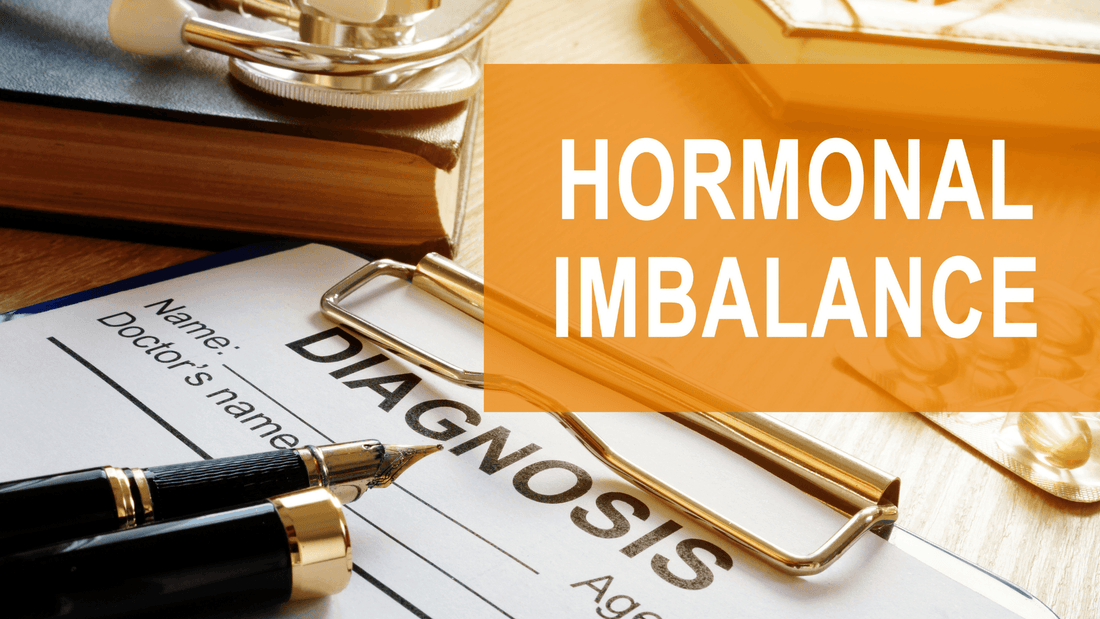
Controlling Your Sugar intake can Improve PCOS symptoms and Hormone Imbalance
Naturally YoursShare

No wonder our society is addicted to sugar—it’s everywhere!
Starting from your morning coffee till dinner, doesn't really matter, if you have restricted your sugar intake but how about your added sugars?
While it may be obvious that intake of high sugar can cause weight gain, have you ever thought about the effect it has on your hormonal health?
As a Dietitian, while giving counselling for polycystic ovary syndrome (PCOS), one of the most common queries I hear from women is about sugar consumption and its connection with PCOS. Though it’s necessary to monitor the amount of sugar, other conditions can also lead to hormonal imbalance.
Here’s what you have to know!
Factors causing hormonal imbalance:
Hormone levels change and fluctuate over time as they don’t remain static. Depending on the type of hormones, as well as the underlying cause - factors can vary as follows;
- Diabetes
- Thyroid problems
- Eating disorders
- Stress
- Tumors
- Polycystic ovary syndrome (PCOS)
- Medications
How’s sugar linked with PCOS?

There’s no doubt that sugar wreaks havoc on the health of women with PCOS. Not only does sugar spike insulin levels but it also contributes to high blood pressure, high levels of triglycerides, and high levels of C-reactive protein, all of which has been linked to oxidative stress and inflammation.
For women especially, a diet full of excessive sugar – which includes all refined carbohydrates, not just the sweet stuff – can lead to significant hormonal imbalance.
Excess sugar consumption is also linked to exacerbated PMS (Pre-Menstrual Syndrome) symptoms such as headaches, cramps, irritation and moodiness.
Insulin creates a vicious cycle in women with PCOS and it makes you crave carbs and more sweets. Insulin is a hormone found in the body that controls glucose (sugar) levels in the blood, and allows glucose to be brought into our body’s cells to be used as energy.
Insulin resistance is when the body's tissues doesn’t respond to the normal level of insulin. The body therefore has to produce excess insulin which increases the production and activity of male hormones.
Hence, insulin resistance is one of the root causes for most of the PCOS. High insulin levels signals ovaries to secrete more testosterone thus resulting in PCOS symptoms like excess androgens and facial hair growth.
Are women with PCOS tempted when it comes to sugar? Unless they take action to control, the health consequences may be worse.
Grasp the following ideas to cut down sugar in your diet!
How to identify added sugars?
You can easily recognize the added sugars on the food labels with the following ingredients in the list. It helps to reduce your sugar intake by restricting these foods.
- brown sugar
- corn sweetener
- corn syrup
- sugar (dextrose, fructose, glucose, sucrose)
- high-fructose corn syrup
- honey
- invert sugar
- malt sugar
- molasses
- any syrup (brown rice syrup, malt syrup)
How to deal with sweet cravings?

Most women with PCOS crave sugary foods, even after eating meals due to increased insulin resistance. To manage this hormonal imbalance, follow the suggestions below;
- Skip sugary drinks and pastries
- Swap sugar for whole fruits
- Replace sugar with organic jaggery, palm sugar and dates syrup
- Pay attention to food labels
- Have a protein and fibre rich meal with complex carbs to satiate your appetite
- Apart from hydrating your body only with water, include other fluids like hot soups, buttermilk, coconut water is also necessary.
- Choose home-made sweets with jaggery instead of buying sweets (more calories).
Generally, restriction of sugar in diet reduces insulin spikes and other health complications (Obesity, Diabetes, Hypertension) along with managing PCOS symptoms.
How sugar restriction helps in hormonal balance?
A strong emphasis on a balanced diet, can help resolve and correct hormonal imbalance that roots from excessive sugar.
High sugar intake along with a highly refined carb/processed food diet are the most common contributors to insulin resistance and hormonal imbalance.
Making changes to direct sugar intake and its quantity consumed through beverages can greatly improve overall health.
The key to keep our sugar cravings at bay is to eat to stabilize our blood sugar. Eating a high fiber well-balanced diet of carbohydrates, quality protein and healthy fats will satiate you, and relieves from constant cravings. Therefore, managing hormone imbalance and blood sugar levels.
Sugary Glimpse!
- After consuming sugar, your immune system is depressed for a few hours, and more susceptible to illness.
- It also pressurizes your adrenal glands (which regulate cortisol, the stress hormone, and aldosterone, which controls your blood pressure) and your thyroid (which secretes hormones responsible for maintaining your metabolism, cognitive function and body temperature.)
- Cortisol levels often rise when there is an increase in blood sugar levels.
- Eliminating sugar helps rebalance your hormones, and can dramatically ease your PCOS symptoms.
What has helped you to take control over your sugar cravings? Leave us a comment below.
ABOUT THE AUTHOR

Indu Vaishnavi R, Dietician
